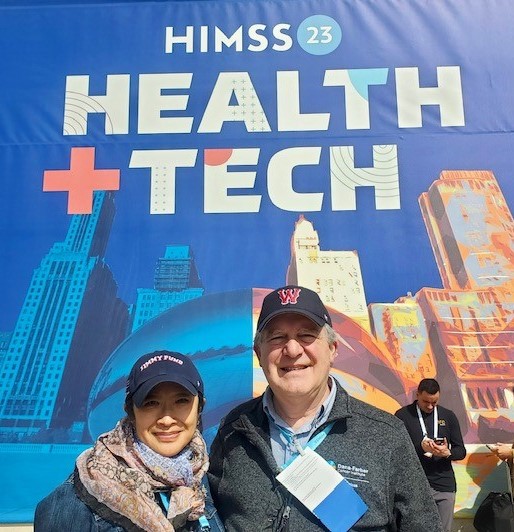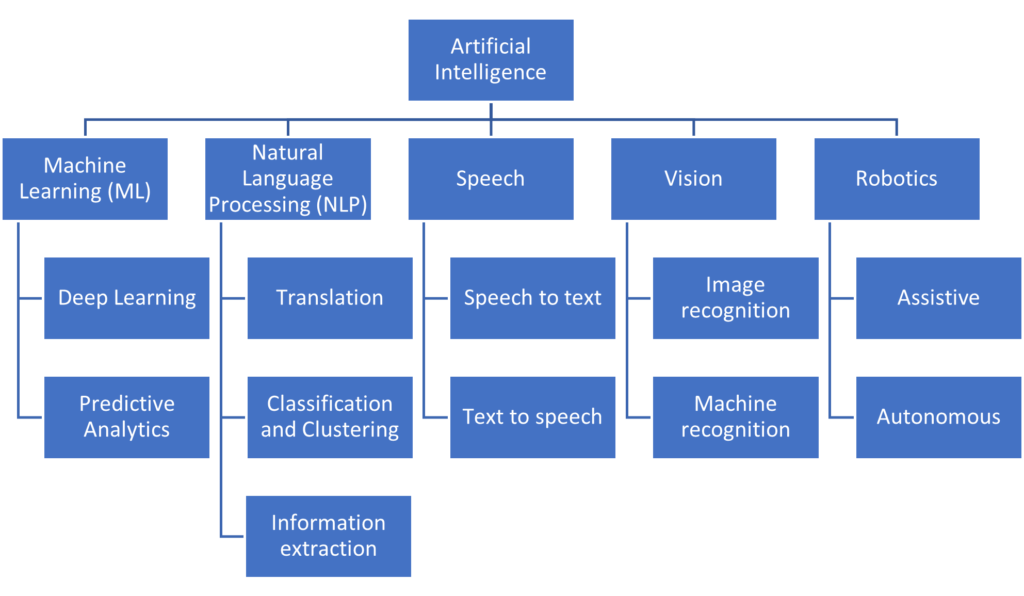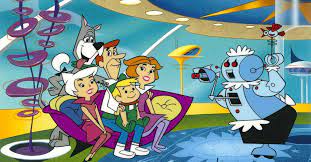Being a HIMSS conference attendee newbie, I only knew that HIMSS23 (Healthcare Information and Management Systems Society) promised 35,000 healthcare-related attendees from around the world, with education, discussion, and networking focused on improving the global health ecosystem with innovative health tech products. Oh my! Thankful that my initiation to the event was with my partner-in-crime in all things Digital Health Innovation-related and veteran/Life Fellow/past NE HIMSS chapter president, Mike Kusmin.

Not surprisingly, much of this year’s conference centered on artificial intelligence (AI), a topic I have mixed emotions with. In this post, I’ll scratch the surface of this ever-evolving topic and share some of my learnings, excitement, and fears.
To get started, what is AI? How does it work?
AI is a rapidly evolving technology that has and will continue to transform many aspects of our lives. It’s a field of computer science that creates programs which can perform tasks that normally require human intelligence and simulate human brain functions such as perception, learning, reasoning, and problem solving.
AI systems are designed to “learn” by processing, analyzing, and categorizing enormous amounts of data. With that, AI systems evolve over time using algorithms finding patterns, making predictions, generating intelligent responses, and/or taking actions.

Inspiration: from Homer to Hollywood
The idea of autonomous thinking, learning and decision-making machines has inspired countless legends and works of fiction. In Greek mythology, it was believed that Talos was a giant, bronze automaton created to patrol and protect the island of Crete. In popular culture, HAL9000 from Arthur Clarke’s “2001: A Space Odyssey” is the robot brain of the spaceship Discovery. While entertaining, both stories also serve as chilling, cautionary tales about the dangers of giving machines power without the capacity to make moral judgments.
The blurring lines of fiction and reality
From the myth of Talos to a fully automated chess playing engine created by IBM’s Alex Bernstein in the late 1950s, AI has grown and evolved, with the development of natural language processing (interprets human language into something a computer can understand and respond to) and machine learning (uses algorithms to identify patterns in data to inform predictions or take actions).
Rosie the Robot and AI in our everyday lives

While our world isn’t (yet) quite what The Jetsons envisioned with flying cars and Rosie the Robot in every home, who here can live without:
- Virtual assistants and smart home devices such as Siri and Nest Thermostat using natural language processing to understand and respond to user requests.
- Online shopping, streaming and social media platforms such as Amazon, Netflix and Facebook using machine learning algorithmsto recommend products and personalize experiences based on user history and preferences.
- Finance, transportation, manufacturing, and healthcare industries relying on AI solutions to provide us better services (while improving their bottom line). Examples include:
- Financial companies: Fraud detection, automated portfolio management, risk assessment
- Transportation: Route optimization, autonomous vehicles
- Manufacturing: Quality control, supply chain optimization
- Service industries: Customer service optimization, reduction of response times
In healthcare today
AI-powered solutions are being used to improve patient outcomes, reduce costs, and increase efficiencies. Some interesting examples include:
- Virtual symptom checking and triage services such as Buoy Health. Buoy’s digital health chatbot uses algorithms to analyze user-provided information and match it with a comprehensive database of medical knowledge and clinical guidelines. Depending on a user’s input, the application may recommend self-care and/or seek medical attention and would be available 24/7.
- Medical imaging products such as GE Healthcare’s Edison use AI algorithms to analyze large amounts of scans to detect and diagnose more accurately, consistently, and quickly than a human alone. Partnered with a care team, AI support can potentially help radiologists detect and classify tumors more effectively. In turn, this can potentially aid in early detection, enabling timely intervention and improved patient outcomes.
- Health Gorilla uses AI to provide physicians with a comprehensive, digitized, organized view of patient health records that are easily searched and shared (across EHRs and privately and securely of course!) for more efficient and coordinated care among distributed care teams. By automating administrative tasks and streamlining workflows, providers are better prepared and able to focus more on direct patient care.
- Here at Dana-Farber, AI helps advance computational cancer genomics research. In Season 2, Episode 6 of Unraveled, listen to podcast host Ken Shulman’s discussion with our very own Dr. Eli Van Allen discuss how AI experts, physicians, and ethicists are working together to apply AI to cancer research.
Our Supersonic Industrial Revolution
David Pesta mused in December 2021: Will Artificial Intelligence Take My Job? His conclusion then “…if you excel at what you do and you understand people, you’re probably safe. Probably.”
Now in June 2023, are we safe? Not if you ask Geoffrey Hinton, the Godfather of AI.
The use of AI provides both remarkable opportunities and significant concerns. While it has and will continue to transform industries, enhance efficiencies, and improve lives, it also requires careful attention to ethical, social, and economic considerations.
Unregulated and in the hands of bad actors, AI can easily be used for malicious purposes. Unsupervised and informed by unbalanced content, AI can be biased and suffer hallucinations. It’s our responsibility to be educated and part of the dialogue that ensures these systems are used for good and not harm. If you’d like to learn more:
- Start here: Coded Bias is a must watch. The documentary explores benefits, risks, and ethical implications of using AI and provides insights on how to hold AI systems accountable.
- The Open Letter to Pause AI refers to a March 2023 open letter published to create awareness and urge for greater oversight over the rapid development of AI systems such as OpenAI’s chatGPT.
- The Medical Futurist Dr. Bertalan Meskó and his team provide timely informative and entertaining content without being overwhelming.
- This Week Health podcast and HISTALK as well as mainstream news outlets. Follow along as the technology and related topics unfold in real time!
P.S. In full disclosure, OpenAI’s chatGPT and Google’s Bard tools helped me better understand some of what I heard at HIMSS23. No, I didn’t ask either to write this post; these words are my own!

Pingback: Artificial Intelligence Picking Up Speed |